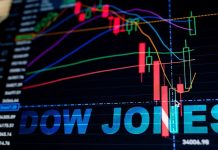Futures market makers may have a different view of what makes a good trade. This type of person has many objectives: hedging, increasing market depth, and the ability to provide liquidity to his or her customers.  In short, he or she wants to maximize returns while minimizing risk. While both kinds of traders have these objectives, they do so in different ways. For example, a farmer who wishes to sell a bushel of corn might hedge its price by selling a derivative. Hedging is not the primary function of a market maker.
In short, he or she wants to maximize returns while minimizing risk. While both kinds of traders have these objectives, they do so in different ways. For example, a farmer who wishes to sell a bushel of corn might hedge its price by selling a derivative. Hedging is not the primary function of a market maker.
Market makers are professional traders, not just anyone. They use proprietary algorithms and software to calculate the relationship between the bid and ask prices for their clients. As a result, they can adjust their offers and bids to match the market conditions. Additionally, they can offload securities from their inventory. If the exchange is interested in granting the title of market maker to someone, it will compensate them with exchange trading privileges for their efforts.
The CBOE (Chicago Board of Options Exchange), in partnership with OneChicago LLC, has proposed a new rule that would allow a market maker to be a bit more than a fancy gizmo. Its proposed rules rely on a combination of regulatory and market participation criteria to make a case for allowing someone to be a market maker. Basically, it will allow a member to be treated as a market maker for security futures contracts on the exchange. Specifically, the proposed rule will require that a market maker perform the main function of making and managing offers and bids in the relevant market.
A market maker is a person or entity that is paid to buy and sell securities in the futures market. The person or entity is responsible for supplying quotes for the various futures markets and adjusting bids and offers as necessary. In addition, the person or entity will receive fee rebates for performing this task. However, the market maker does not have to be a professional trader. Instead, the market maker will be judged on its performance in a standardized manner.
One of the more laudable functions of a market maker is the fact that they have improved the liquidity of the broader futures market. By providing liquidity, it becomes easier for retail traders to enter and exit a trade. And, as a bonus, they improve the quality of the overall market by facilitating liquidity. Another benefit of a market maker is that it provides the most comprehensive list of potential products and markets to which a customer can trade. These range from ETFs to FX options, and even Agricultural options.
To qualify as a market maker, the individual or entity must meet the basic quoting requirements. They also must meet some other requirements as well. Most importantly, the person or entity must be a member of the exchange. Among the other requirements are that the market maker must be assigned to provide liquidity in a specified number of security futures contracts. Also, the market maker must be available to provide quotes to his or her customers for a period of at least three business days.









































